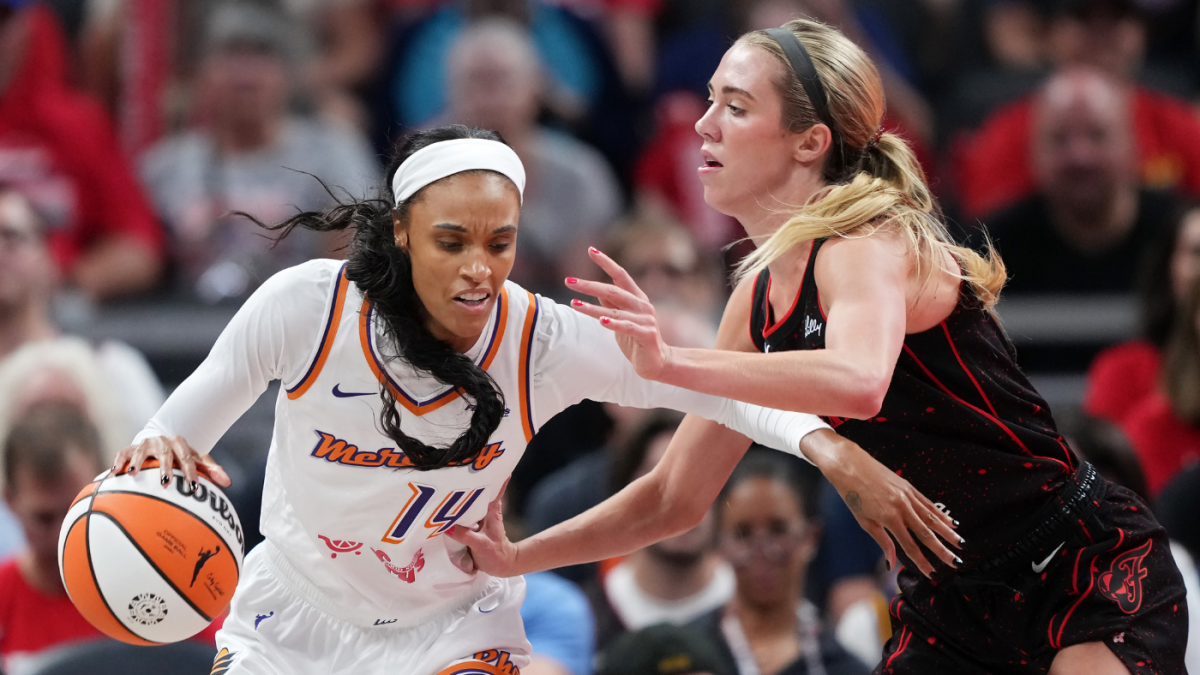The DeWanna Bonner Controversy: A Deep Dive into Fan Reactions and WNBA Dynamics
The recent controversy surrounding WNBA star DeWanna Bonner’s return to Indiana has ignited a firestorm of debate, revealing the intricate dynamics between players, teams, and fans. The hostile reception Bonner faced upon her return with the Phoenix Mercury to play against the Indiana Fever has sparked discussions about loyalty, fan behavior, and the pressures of professional sports. This report explores the nuances of the situation, dissecting the factors that led to this contentious homecoming and examining its broader implications for the WNBA.
The Short-Lived Fever Dream
DeWanna Bonner’s tenure with the Indiana Fever was brief and tumultuous, setting the stage for the animosity she later faced. Acquired with high expectations, Bonner’s time in Indiana was marked by struggles to integrate into the team’s system and find on-court chemistry. Despite her impressive resume as a six-time WNBA All-Star, her performance and fit with the Fever were questioned, leading to her eventual waiver after just nine games.
The abrupt departure, especially after such a short stint, fueled fans’ frustration. Many felt betrayed, viewing Bonner’s quick exit as a lack of commitment to the team and the city. The perception that she used the Fever as a stepping stone or was not invested in the team’s long-term success further exacerbated the fans’ discontent. This sense of betrayal culminated in the widespread boos and jeers directed at Bonner during her return to Indiana.
The Boos Echo Through Gainbridge Fieldhouse
The atmosphere at Gainbridge Fieldhouse was tense when Bonner and the Phoenix Mercury arrived for their game against the Fever. As Bonner entered the game, the boos began, creating a palpable sense of hostility. The jeers persisted throughout the contest, reflecting the fans’ displeasure and sense of betrayal.
While booing is a common expression of fan displeasure, the intensity and duration of the boos in this case raised questions about the appropriateness of such behavior. Some argue that booing is a natural part of the game, a way for fans to show their support for their team. Others, however, view it as disrespectful, particularly when directed at a player who was once expected to be a key contributor.
Kahleah Copper’s Strong Defense
Amidst the storm of criticism, Kahleah Copper, Bonner’s teammate on the Phoenix Mercury, stepped forward to defend her. Copper described the Fever fans’ treatment of Bonner as “distasteful” and emphasized Bonner’s character as a “sweetest soul.” She argued that the situation simply “didn’t work” for Bonner and that the level of animosity was unnecessary.
Copper’s passionate defense highlighted the camaraderie within the Mercury team and the players’ support for one another. Her comments also underscored the human element often overlooked in the heat of competition, reminding fans that athletes are not merely performers but individuals with feelings and emotions. This defense raised important questions about the impact of fan behavior on athletes and the need for respectful conduct.
Broader Implications for the WNBA
The DeWanna Bonner controversy extends beyond a single game or a specific player, touching on broader issues within the WNBA. The league has seen an increase in player movement in recent years, with free agency and trades becoming more common. This mobility allows players to pursue better opportunities or seek teams that better fit their playing style. However, it can also lead to situations like the Bonner case, where fans feel betrayed by players who leave their teams after a short period.
Furthermore, the Bonner situation highlights the growing pressure on WNBA players, particularly those with high profiles. The league’s surge in popularity, driven in part by the arrival of stars like Caitlin Clark, has brought increased scrutiny. Fans now hold players to higher standards and react more strongly to perceived failures, adding to the pressure on athletes.
Navigating the Complexities of Professional Sports
The DeWanna Bonner saga is a reminder of the complex dynamics that exist within professional sports. It’s a world where loyalty, performance, and fan expectations often collide, creating difficult situations for both players and teams. While fans have the right to express their opinions and support their team, it’s crucial to consider the impact of their actions on the athletes involved. Striking a balance between passionate support and respectful behavior is essential for maintaining a positive and welcoming environment in the WNBA and other professional sports leagues.
A Bitter Pill or a Necessary Lesson?
Ultimately, the boos directed at DeWanna Bonner serve as a stark reminder of the intense emotions that sports can evoke. Whether the reaction was justified or simply an overreaction, it has undoubtedly left a mark on Bonner, the Fever organization, and the WNBA as a whole. This incident may serve as a lesson, prompting fans to consider the human element behind the game and encouraging players to approach team commitments with greater care. Or it may simply be another example of the harsh realities of professional sports, where loyalty is often fleeting and fan expectations can be unforgiving. Regardless, the DeWanna Bonner controversy is a compelling case study in the complex relationship between athletes, teams, and the passionate fans who support them.











